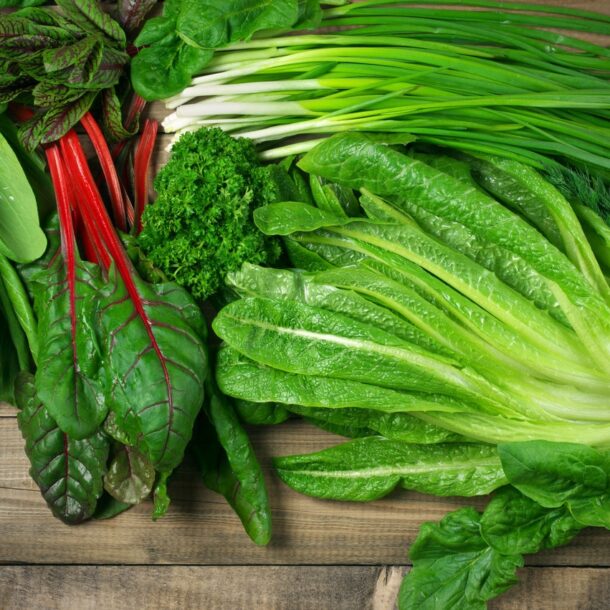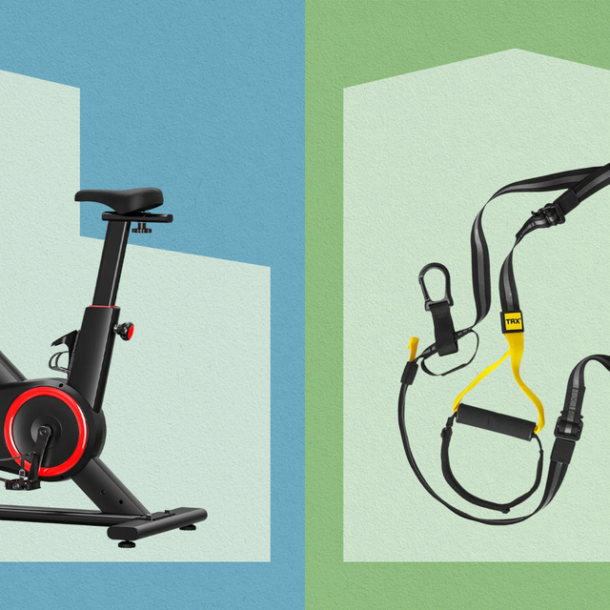
How To Detox Your Body: A Simple Guide: HealthifyMe
Detoxes and cleanses are regimens, diets, or therapies aimed at eliminating toxins and promoting health and are often associated with weight loss. These approaches include fasting, consuming only specific beverages or foods, using supplements and herbs, colon cleansing, or saunas.
Detox diets are popularly believed to offer various benefits, including reducing bloating and addressing chronic conditions like constipation and acidity, along with potential improvements in skin and hair texture. Some detox plans range from short-term, such as three days, to more extended periods, like one to two weeks. While specific diet plans incorporate high-fibre foods and supplements, others emphasise liquid consumption.
It’s important to note that the research on these practices in humans is somewhat limited and inconclusive, making it challenging to draw definitive conclusions about their long-term effects.
Natural Detoxification of the Body
The body possesses its natural detoxification mechanisms. Toxins within the body exist in two forms:
- Endotoxins, which are byproducts generated by the body, such as lactic acid, urea, and faeces.
- “Exotoxins come from external sources such as household cleaning products, cosmetics, environmental pollutants, and pesticide residues on food.
The liver has a primary function: detoxifying the substances one naturally encounters through a diet and environment. The most effective way to support the body in eliminating toxins is by maintaining a healthy liver. The kidneys play a pivotal role in detoxification, too, by filtering the blood to remove waste products and excess substances, which form the urine.
Summary
The body has its natural detoxification mechanisms, dealing with toxins in two forms: endotoxins, which are byproducts produced within the body, and exotoxins, originating from external sources like cleaning products, cosmetics, and environmental pollutants. The liver is primarily responsible for detoxifying substances from diet and the environment, making a healthy liver crucial for effective toxin elimination. The kidneys also play a key role by filtering the blood to remove waste products.
Detox Diet: The Ideal Approach
A detox diet involves adopting a balanced diet to prevent overloading the liver with excessive fat, sugar, or alcohol. Keeping the liver healthy ensures it can efficiently handle its vital detoxification functions, safeguarding overall well-being. There is limited evidence that commercial detox diets enhance liver detoxification and remove persistent organic pollutants from the body. Commercial detox diets refer to detoxification diet plans or programs that are marketed and sold by companies or businesses. These are typically structured diet regimens or products that claim to help individuals cleanse their bodies, eliminate toxins, and improve their health. These programs often include specific foods, supplements, or beverages that are marketed as having detoxifying properties. However, the effectiveness and scientific validity of many commercial detox diets are often a subject of debate and may vary widely.
Fast food, sedentary lifestyles, and irregular eating habits have become the norm today. These factors can gradually harm the liver, especially when it has to process fried foods and sugary drinks, leading to the accumulation of fat in the liver. It can eventually result in obesity and metabolic disorders, including non-alcoholic fatty liver disease. If alcohol consumption is also in the mix, it can worsen the situation. Therefore, to prevent further fat accumulation and promote liver health, it’s essential to adopt a healthy diet and limit alcohol consumption. Transitioning to a wholesome diet rich in lean proteins, whole grains, fruits, and vegetables can be a beneficial step in this direction. A detox diet can serve as a starting point for this healthy lifestyle change.
Summary
A detox diet involves adopting a balanced eating plan to prevent overloading the liver with excessive fat, sugar, or alcohol. A healthy liver is crucial for efficient detoxification and overall well-being. While there is limited evidence that commercial detox diets enhance liver detoxification and remove persistent organic pollutants from the body, contemporary lifestyles marked by fast food, sedentary habits, and irregular eating can gradually harm the liver. To prevent further fat accumulation, a detox diet may serve as a helpful starting point in adopting a healthier lifestyle.
Benefits of Detox Diets
- Reduced Inflammation: Detox diets can help reduce chronic inflammation, potentially alleviating related health issues.
- Enhanced Digestion: These diets lead to improved digestion, aiding in nutrient absorption and reducing gastrointestinal discomfort.
- Increased Energy Levels: Detox programs can boost energy, promoting vitality and combating fatigue.
- Strengthened Immune System: Detox diets enhance the body’s immune response, providing better protection against illnesses and infections.
- Quick Weight Loss: Short-term detox plans can lead to rapid weight loss, primarily through water loss and reduced calorie intake.
- Limited-Time Effort: While sustainable, gradual weight loss is imperative for long-term success, some prefer shorter-term commitments with quick results. Detox diets can serve as a stepping stone, motivating people to make healthier dietary choices in the long run.
- Better Sleep Quality: Detox diets offer short-term benefits beyond weight loss, potentially impacting sleep quality and dietary habits. Cutting out caffeine and alcohol during detox can lead to better sleep quality, which is associated with improved nutritional choices.
- Improved Skin and Hair: One experiences better-looking skin and improved hair texture when the body functions optimally.
- Resets Habits: After periods of indulgent eating, a short detox diet can help individuals shed water weight, reset their eating habits, and reacquaint their taste buds with healthier foods. It can break the cycle of cravings for less nutritious options and return to a regular, more nutritious eating plan.
Summary
Detox diets offer a range of benefits, including reduced inflammation, improved digestion, increased energy levels, a strengthened immune system, and quick weight loss. However, the latter is often due to water loss and reduced calorie intake. These diets require limited-time commitments, making them appealing to those seeking rapid results. They can also lead to better sleep quality by eliminating caffeine and alcohol, potentially influencing long-term dietary habits. Improved skin and hair quality result from enhanced bodily function. Detox diets can serve as a reset button for individuals looking to shed water weight, reacquaint their taste buds with healthier foods, and break the cycle of cravings for less nutritious options.
Foods That Help to Detox
Some foods and beverages are known for their potential to support the body’s natural detoxification processes:
- Water: Staying well-hydrated with water is crucial for effective detoxification.
- Green Tea: Green tea contains catechins that support liver function and detoxification.
- Vegetables: Vegetables like cauliflower and cabbage contain sulphur compounds that support the liver’s detoxification processes.
- Citrus Fruits: Citrus fruits are rich in vitamin C, which promotes liver detoxification and boosts antioxidant levels.
- Berries: Berries like blueberries and strawberries can be included in your diet to benefit from their antioxidant properties.
- Turmeric: Turmeric, widely used in Indian cuisine, contains curcumin, which has anti-inflammatory and antioxidant properties, supporting detoxification.
- Garlic: Garlic has sulphur compounds that aid in detoxification.
- Ginger: Ginger has anti-inflammatory properties that can support digestion and detoxification.
- Coriander: It is a common herb in Indian cooking and may assist in the removal of heavy metals from the body.
- Spices: Spices like cumin and fennel are used in Indian cuisine and can aid digestion, potentially supporting detoxification processes.
- Moong Dal: Mung beans are a staple in Indian cuisine and are known for their fibre content, which supports digestion and detoxification.
- Ajwain: Ajwain seeds are used in Indian cuisine and can aid in digestion and help alleviate bloating.
- Triphala: Triphala is an Ayurvedic herbal mix used to support digestion and detoxification.
- Neem: Neem leaves and oil are known in Ayurveda for their detoxifying properties.
- Amla: Amla, or Indian gooseberry, is rich in vitamin C and is used in various Ayurvedic preparations to support detoxification and overall health.
Incorporating certain foods and beverages into a diet can contribute to better overall health and support the body’s natural detoxification processes. Always consult with a nutritionist before starting a detox diet. To design a meal plan that is ideal for one, one needs to take into account age, gender, health condition and several other parameters.
Summary
Staying well-hydrated with water is crucial for the detox process. Green tea, with its catechins, aids liver function and detoxification. Vegetables such as cauliflower and cabbage provide sulphur compounds that support the liver’s detox processes. Citrus fruits, rich in vitamin C, promote liver detox and boost antioxidant levels. Berries offer antioxidants, while turmeric’s curcumin has anti-inflammatory and antioxidant properties. Coriander and spices like cumin and fennel help digestion and detox. Moong Dal’s fibre content supports digestion, as do ajwain seeds. Triphala, neem, and amla are also known in Ayurveda for their detoxifying properties.
Exercise: An Essential Aspect of Detox
Yoga and exercise support the body’s natural cleansing processes. While dietary choices are significant, physical activity complements and enhances the detoxification journey in several essential ways.
Here’s how they contribute to the detoxification process:
Benefits of Yoga for Detoxification
- Stimulating the Lymphatic System: Yoga poses involve gentle twists and stretches that stimulate the lymphatic system. The lymphatic drainage removes waste and toxins from the body. When you move and stretch during yoga, you encourage lymphatic drainage, which aids in detoxification.
- Enhanced Circulation: Yoga postures and movements increase blood flow and oxygenation throughout the body. Improved circulation promotes the transportation of nutrients to various cells and the removal of waste products and toxins.
- Breathing Techniques: Pranayama, the practice of controlled and mindful breathing, is an integral part of yoga. Deep breathing exercises oxygenate the body and promote the release of carbon dioxide and toxins through exhalation.
- Digestive Health: Certain yoga poses help massage and stimulate the abdominal organs, which can improve digestion and health and eliminate waste and toxins.
- Stress Reduction: Yoga’s emphasis on mindfulness, relaxation, and deep breathing helps reduce stress and lower the production of stress-related hormones and chemicals in the body.
- Mind-Body Connection: Yoga fosters a strong mind-body connection, which can lead to more conscious and healthy lifestyle choices, including dietary decisions that support detoxification.
Benefits of Exercise for Detoxification
- Enhanced Circulation: Physical exercise, such as cardiovascular activities, increases blood circulation and oxygen delivery to cells. This improved circulation supports the body’s natural cleansing processes.
- Lymphatic Flow: Exercise stimulates the lymphatic system, helping to remove waste materials, toxins, and cellular debris from the body.
- Sweating: Physical activity induces sweating, which is a natural mechanism for eliminating toxins through the skin. Sweating can help eliminate heavy metals, pollutants, and other harmful substances.
- Stress Reduction: Regular exercise is known to reduce stress and promote mental well-being. Lower stress levels can reduce the production of stress-related hormones and chemicals, supporting detoxification.
- Weight Management: A healthy weight is imperative for detoxification. Exercise can help with weight management, reducing the burden on the body and aiding in toxin elimination.
- Digestive Health: Exercise can promote healthy digestion and regular bowel movements, which are essential for efficient toxin elimination through the digestive system.
- Liver Function: Exercise can enhance the function of the liver, a critical organ in detoxification, by improving metabolism and the removal of toxins from the body.
Summary
Both yoga and exercise, when integrated into a healthy lifestyle, can contribute to detoxification. Yoga stimulates the lymphatic system, enhances circulation, and employs breathing techniques to release carbon dioxide and toxins. It also aids in improving digestive health and stress reduction and promotes mindful lifestyle choices. Regular physical exercise, on the other hand, enhances circulation, lymphatic flow, and sweating, aiding in toxin elimination. Exercise reduces stress, manages weight, supports digestion, and improves liver function, contributing significantly to overall detoxification and overall well-being.
Steps to Detox
Here are the critical steps of a holistic approach to detox:
1. Nutrient-Rich Diet: A holistic detox begins with a nutritious meal plan that supports the body’s natural detoxification processes. Emphasise whole, unprocessed foods, such as fruits, vegetables, lean proteins, whole grains, and healthy fats. Minimise or eliminate processed foods, added sugars, and artificial additives.
2. Hydration: Proper hydration is fundamental for detox. Drinking the right amount of water helps flush out toxins from the body and supports organ function. Consider incorporating herbal teas, infused water, or detox-specific beverages to enhance hydration and detoxification.
3. Mindful Eating: Mindfulness in eating involves paying close attention to the flavours and textures of your food. This practice promotes better digestion and aids in weight management.
4. Regular Physical Activity: Exercise and yoga play a significant role in holistic detoxification. Physical activity improves circulation, stimulates lymphatic flow, reduces stress, promotes sweating, and supports weight management, all of which aid in detoxification.
5. Mental Detox: Reducing mental clutter, stress, and negative thought patterns is essential. Practices like meditation, deep breathing, and mindfulness help cleanse the mind, reduce stress, and promote mental clarity and emotional balance.
6. Emotional Well-Being: Acknowledge and address emotional issues and stressors. Holistic detox often includes practices such as journaling, therapy, or support groups to release emotional toxins and cultivate emotional wellness.
7. Rest and Sleep: Adequate rest is vital for detoxification. Proper sleep allows the body to heal, remove waste products from the brain, and restore energy levels.
8. Digital Detox: Reducing screen time, especially before sleeping, can improve sleep quality and reduce stress. Limiting exposure to the constant influx of digital information supports mental and emotional detox.
9. Environmental Detox: Reducing exposure to environmental toxins is part of holistic detox. It involves using natural cleaning products, purifying indoor air, and minimising contact with harmful chemicals and pollutants.
10. Social Detox: Evaluate your social circles and relationships. Surrounding yourself with positive, supportive, and uplifting people can be detoxifying for your emotional and mental well-being.
Summary
A holistic approach to detox involves several critical steps for promoting overall well-being. It begins with a nutrient-rich diet that emphasises whole foods and eliminates processed and artificial additives. Proper hydration is crucial for flushing toxins from the body. Mindful eating encourages better digestion and weight management. Regular physical activity, including exercise and yoga, improves circulation, stimulates lymphatic flow, and reduces stress. Mental detox involves reducing mental clutter and negative thought patterns through practices like meditation and mindfulness. Emotional well-being addresses emotional issues and stressors. Rest, sleep, and decreased screen time are essential for physical and mental detox. An environmental detox reduces exposure to toxins, while a social detox evaluates relationships for emotional well-being.
Limitations of Detox Diets
- Detox diets often lead to short-term weight loss because they significantly reduce calorie intake. When you consume fewer calories, your body burns stored fat for energy, resulting in weight loss. However, once you return to your regular eating habits, the calorie intake increases, and you may regain the lost weight.
- Some detox diet plans include harmful ingredients or make false health claims to attract consumers. They may use marketing gimmicks to promote their effectiveness. It can lead to safety concerns because you might unknowingly expose yourself to potentially harmful substances.
- Detox concoctions and juices used in these diets can have adverse effects on health. For instance, high-oxalate juices may increase the risk of kidney problems because oxalates can form crystals in the kidneys. This risk highlights the importance of choosing detox diets carefully and understanding their potential impact on your health.
- People with pre-existing health conditions, like diabetes, can be more vulnerable when making significant dietary changes, such as starting a detox diet. Changes in diet can affect blood sugar levels and other health parameters, so individuals with health conditions must consult healthcare providers before making such changes.
Summary
Detox diets may yield short-term weight loss due to low caloric intake but can lead to post-diet weight gain. Safety concerns arise from harmful ingredients, false health claims, and potential risks associated with detox concoctions. High-oxalate juices can affect kidney health. People with diabetes or other health conditions should consult healthcare providers before adopting detox diets.
HealthifyMe Suggestion
An easier way to detox is by including detox water as a part of your daily diet. Detox water is infused water, or fruit-flavoured water, made by adding slices of fresh vegetables or fruits with some herbs in plain water. You can make infused water in numerous ways depending on your choices of vegetables, fruits, and herbs.
The most common types of infused water include orange/lemon-mint water, apple-cinnamon water, strawberry-mint water, ginger-lemon water and cucumber water.
Try having a few glasses of infused water daily to reap its benefits.
The Final Word
Detoxification is a natural bodily process. A holistic approach to detoxification encompasses the integration of various strategies that promote optimum working of the body. A healthy approach to detox recognises that optimal well-being involves a balanced food intake coupled with exercise and adequate rest. By integrating these elements, people can achieve a sustainable state of detoxification that supports long-term health and vitality. However, specific measures like eliminating certain food items, choosing to fast or opting for measures like colon cleansing can have a positive impact on liver functioning. One can follow such detox diets under the supervision of a qualified nutritionist for a limited period. Despite the popularity of detox diets, the clinical evidence supporting their use remains limited.
Disclaimer: The purpose of this article is just to disperse knowledge and raise awareness. It does not intend to replace medical advice from professionals. For further information, please contact our certified nutritionists Here.
Frequently Asked Questions
Q: What does it mean to “detox” your body?
A: Detoxing means the removal of harmful substances and toxins from the body. It is usually for losing weight or promoting health by involving dietary and lifestyle changes.
Q: Are there specific organs responsible for detoxifying the body naturally?
A: The liver and kidneys are essential organs that aid the natural detoxification process.
Q: Can detox diets and cleanses help remove toxins from the body?
A: While detox diets and cleanses may help eliminate toxins, scientific support is limited. Making dietary changes and an active lifestyle improves the body’s ability to remove toxins and waste adequately.
Q: What role do the kidneys and liver play in the body’s natural detoxification process?
A: The kidneys filter blood, while the liver metabolises and eliminates toxins in the natural detox process.
Q: Are there signs or symptoms that indicate your body needs a detox?
A: One may need a detox when the body shows signs of excess weight, fatigue, digestive issues, sleep issues and skin problems.
Q: How long does it take to complete a successful detoxification process?
A: The duration of a successful detox varies. Therefore, consult a healthcare provider for personalised guidance. Standard detox diets can last up to 1-4 weeks. However, there is no one-size-fits-all kind of measure.
Q: What foods and drinks are considered detoxifying for the body?
A: Detoxifying foods and drinks include fruits, vegetables, water, and herbal teas. Fibre-rich foods can aid in proper digestion and regular bowel movements, which are essential for the removal of waste and toxins from the body. Green tea contains antioxidants called catechins that may support the body’s detoxification processes.
Q: Is fasting or abstaining from certain foods part of a detox regimen?
A: Fasting or restricting specific foods can be part of a detox regimen. Too many sugary foods, fried snacks, and simple carbohydrates may impede the smooth functioning of the liver, leading to fat accumulation. Refraining from those can kickstart your body’s ability to detox naturally.
Q: Are there specific herbs or supplements that aid in detoxification?
A: Herbs and supplements like milk thistle and dandelion support detoxification. Green tea contains antioxidants called catechins that may support the body’s detoxification processes.
Q: Can exercise and physical activity contribute to the detox process?
A: Exercise enhances circulation and supports the body’s natural detox process. Regular physical activity can contribute to healthy weight management, which can reduce the level of stored toxins. Aerobic exercise can lead to sweating. Sweat is one of the body’s mechanisms for eliminating certain toxins.
Q: Is it safe to do a detox while pregnant or breastfeeding?
A: Consult a nutritionist or a healthcare provider before detoxing during pregnancy or breastfeeding. Extreme detox diets or cleanses can potentially put additional stress on the internal organs, which may not be safe during pregnancy or while breastfeeding.
Q: Are there potential side effects or risks associated with detox diets?
A: Detox diets have side effects and risks, including electrolyte imbalances, depletion of essential vitamins and minerals, weakness, irregular bowel movements, etc.
Q: Can detoxification practices help with weight loss and improving metabolism?
A: Some studies suggest detox aids short-term weight loss and improved metabolism, but long-term effects are unclear. The ideal way to detox is to have a balanced diet coupled with healthy habits like exercising and proper amount of sleep and leading a stress-free life.
Q: How often should someone consider detoxifying their body?
A: The body is capable of detoxifying itself on its own. However, specific dietary changes and lifestyle management can help the body when it is not at its best. The frequency of detox varies by individual needs and goals.
Q: Are there natural methods to support the body’s detoxification processes without extreme diets or cleanses?
A: Natural methods for detox include a balanced diet, hydration, exercise, and stress management. Staying well-hydrated helps flush toxins out of the body through urine and sweat.
Research Sources
Detox diets for toxin elimination and weight management: a critical review of the evidence
Popular Weight Loss Strategies: a Review of Four Weight Loss Techniques
Related Articles
2023 Bodyfender @ All Rights Reserved


